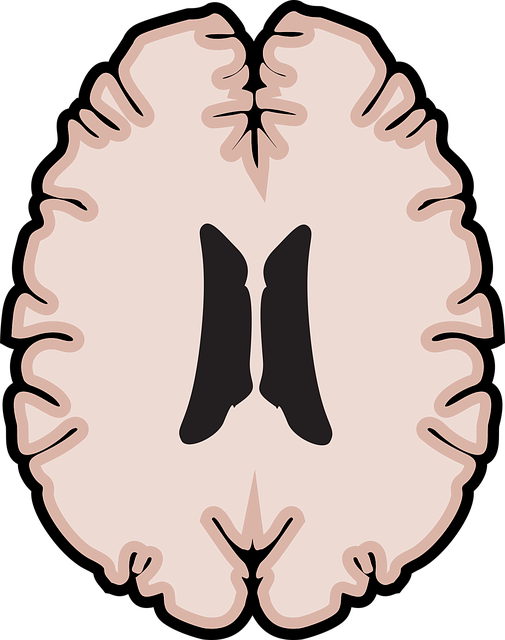Burnout among healthcare providers, driven by workload and stress, negatively impacts well-being and patient care. Northglenn Terminal Illness Therapy tackles this through comprehensive strategies: Cultural Competency Training, Self-Esteem Improvement, Emotional Well-being Promotion, open communication, conflict resolution, time management techniques, mental illness stigma reduction, staff meetings, peer support, self-esteem workshops, resilience building, mental wellness journaling, exercise guidance, and compassion cultivation. These initiatives prioritize employee well-being, foster a supportive environment, and ultimately enhance patient care at Northglenn Terminal Illness Therapy.
Healthcare provider burnout is a growing concern, impacting both patient care and professional satisfaction. This article explores comprehensive strategies to prevent burnout among healthcare workers, focusing on practices employed by Northglenn Terminal Illness Therapy. We delve into the causes and symptoms of burnout, offering insights on creating supportive work environments, effective time management, enhanced communication, collaboration, and emphasizing self-care—essential tools to combat this issue. Learn from Northglenn’s approach to foster a healthier, more resilient workforce.
- Understanding Burnout Among Healthcare Providers: Causes and Symptoms
- Creating a Supportive Work Environment at Northglenn Terminal Illness Therapy
- Implementing Effective Time Management Strategies
- Fostering Communication and Collaboration among Caregivers
- Prioritizing Self-Care Practices for Long-Term Well-being
Understanding Burnout Among Healthcare Providers: Causes and Symptoms

Burnout among healthcare providers is a growing concern, impacting not only individual well-being but also patient care and overall healthcare system performance. It manifests as a state of emotional exhaustion, cynicism, and reduced professional efficacy. Northglenn Terminal Illness Therapy highlights that this phenomenon is driven by various factors such as heavy workload, long shifts, high-stress environments, and lack of control over work processes. Healthcare providers often struggle to balance the demands of their profession with personal life, leading to feelings of exhaustion and detachment.
Symptoms can range from physical weariness and insomnia to emotional distancing and loss of empathy towards patients. The impact extends beyond the individual, affecting patient satisfaction and treatment outcomes. To combat burnout, healthcare organizations should prioritize strategies like Cultural Competency Training to foster inclusive environments, Self-Esteem Improvement initiatives to boost confidence and resilience, and Emotional Well-being Promotion Techniques that encourage open communication and stress management.
Creating a Supportive Work Environment at Northglenn Terminal Illness Therapy

At Northglenn Terminal Illness Therapy, creating a supportive work environment is at the heart of their approach to burnout prevention. This involves fostering a culture where open communication and conflict resolution techniques are encouraged from the highest levels of management. Staff members are regularly trained in active listening and constructive feedback methods, ensuring that everyone feels heard and valued.
Additionally, Northglenn Terminal Illness Therapy prioritises self-esteem improvement initiatives. They organise workshops and seminars focused on resilience building and stress management, empowering their healthcare providers to better handle the emotional demands of their work. By integrating these strategies, the therapy centre aims to maintain a positive and rejuvenating atmosphere, preventing burnout among its dedicated professionals.
Implementing Effective Time Management Strategies

Healthcare providers often face overwhelming workloads and demanding schedules, which can lead to burnout if left unaddressed. Implementing effective time management strategies is a crucial step in preventing this issue, especially for those offering Northglenn Terminal Illness Therapy. By prioritizing tasks and allocating specific time slots for different activities, professionals can reduce the pressure of endless to-do lists. For instance, scheduling dedicated blocks for patient assessments, therapy sessions, and documentation ensures a balanced approach to work, allowing for necessary breaks.
Mental illness stigma reduction efforts and cultural sensitivity in mental healthcare practice play a significant role in this process. When providers feel supported and empowered to discuss workload challenges openly, they can create an environment that fosters empathy building strategies. This, in turn, enhances their ability to manage time effectively while providing compassionate care.
Fostering Communication and Collaboration among Caregivers

In healthcare settings, fostering open communication and collaboration among caregivers is a powerful strategy to prevent burnout. When teams work together cohesively, they create a supportive environment that enhances patient care and reduces individual workloads. Implementing regular staff meetings, peer support programs, and cross-functional collaboration can help Northglenn Terminal Illness Therapy providers connect, share experiences, and offer emotional support. This collective approach not only improves job satisfaction but also encourages the exchange of knowledge and best practices for effective stress management.
Moreover, integrating self-esteem improvement initiatives and resilience-building workshops within the organization can further bolster caregiver well-being. These programs empower staff to manage their stress levels, boost confidence in patient care, and enhance overall job performance. By prioritizing open communication, collaboration, and employee development, healthcare providers can create a resilient work culture that prevents burnout and ensures high-quality patient care at Northglenn Terminal Illness Therapy.
Prioritizing Self-Care Practices for Long-Term Well-being

In the pursuit of providing quality care, healthcare providers often prioritize patient needs over their own well-being, leading to burnout and decreased job satisfaction. However, prioritizing self-care is a game-changer in preventing this issue. Engaging in regular mental wellness journaling can help healthcare professionals process their emotions, reflect on challenging experiences, and foster resilience. Incorporating exercise guidance tailored to their physical needs can also alleviate stress, boost energy levels, and enhance overall fitness. These practices create a much-needed balance, ensuring that providers are equipped to offer the best care possible.
Additionally, compassion cultivation practices play a significant role in long-term well-being. By regularly nurturing their emotional capacity and cultivating empathy, healthcare providers can maintain a positive mindset, even in demanding situations. This not only prevents burnout but also strengthens their ability to connect with patients, offering compassionate care that goes beyond the clinical setting. Strategies such as these are essential for Northglenn Terminal Illness Therapy, where self-care is a cornerstone of holistic patient support.
Healthcare provider burnout is a pressing issue, but with intentional strategies, it can be mitigated. Organizations like Northglenn Terminal Illness Therapy demonstrate that fostering a supportive work environment, implementing effective time management, encouraging communication and collaboration, and prioritizing self-care are key to preventing burnout. By adopting these practices, healthcare providers can sustain their passion, improve patient care, and create a healthier, more fulfilling professional experience.














